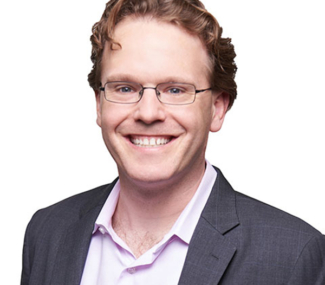The Timeless Philosophies of Disruption and Innovation

A few years ago, I wrote a piece articulating what lessons consultants could take from bartending. Recently, I was reflecting on that article and considering how, at Toffler Associates, we encourage our clients to look outside their company and their industry for answers to complex questions. As I thought about the Tofflers and our legacy as a firm, that timeless search for meaning struck me as one of the most critical aspects of understanding change. That seemingly simple realization prompted me to reflect on the art and science of philosophy in our contemporary context of change, disruption, innovation, and changing leadership.
The Constant Search for Meaning
The search for meaning is not new. Humans have searched for answers to life’s biggest questions since the beginning of time. How we undertake that search has changed, but the fundamental desire to gain knowledge and understanding endures. In recent years, most of the focus of the effort has shifted to technology. Too often, the hyper-state of innovation in that industry and the excitement of the technology itself distract us from considering how the future impacts our workforce and society.
Many of the executive teams or boards with which I work talk about becoming “more digital” or “leveraging technology.” I often press them and ask what they mean when they use those terms. The definition of technology has come to mean a lot of things to a lot of people over the last 20 years or so. Still, if you look deep into history, technology in its fundamental sense has existed for millennia.
As is so often the case, its simplest definition makes the most sense: technology is the practical application of knowledge especially in a particular area. With that in mind, consider just how disruptive and cutting-edge Gutenberg’s moving type printing press was in 1440. In that same way, Martin Luther’s 95 Theses – sent to the Archbishop of Mainz in 1517, launching the Reformation – represents early social media in action. Printing enabled the distribution of information and influence, once put in the hands of someone dedicated to the pursuit and dissemination of understanding, meaning, and progress.
As the Tofflers – and members of the Toffler Associates team – have always said, the pace of technology is constantly accelerating. Most people do their best to keep up. Some use it to empower knowledge and change.
It’s rare that we get the chance to step back and take a look at the big picture – to search for meaning. I always ask my clients: Who is the philosopher in your board room? Who is the person empowered and courageous enough to pause the momentum to step back and ask why?
Similar to my previous effort to extract bartending lessons for consultants, I thought I would take a step back from the usual talk of (vital, current) topics like geopolitical climate and biodigital convergence to consider how philosophers could help us understand the accelerating pace of change and what we might do about it.
Philosophers in the Board Room
What would philosophers ask your board or leadership team if they walked into the room while you were discussing the future?[1] What lessons can we take from their perspectives? Let’s explore what questions some of the most noted philosophers might ask if they walked into your leadership meeting. We’ll begin with one of their foundational hypotheses and then pose questions you might ask to answer the question for your organization.
John Locke
John Locke walks into the room…and says, “New opinions are always suspected, and usually opposed, without any other reason but because they are not already common.”
- During your discussions, how open are you to different opinions?
- How quickly do you move to argue with the new opinion rather than engage?
- Do you judge the speaker quickly because of the role she plays in the organization or because he has less experience in the industry?
The world is constantly changing. Facts we believed to be true, perspectives once considered immutable fall to the ravages of time. If everything changes, you should make sure you are listening to new opinions and, at the very least, considering them to help shape your future.
Voltaire
Voltaire entre dan the room…and says, “Doubt is an unpleasant condition, but certainty is absurd.”
- What decisions that were correct yesterday have become out of synch today?
- What realities do you know today that could become out of synch tomorrow?
Nobody can predict the future. That is why Toffler Associates leverages Alternate Futures® Scenario Planning to help clients explore possible future worlds and identify valuable investments they can make today to prepare. Doubt is unpleasant, but it is the reality in a world that is constantly changing. Leaders must find ways to be more comfortable with doubt. They need to recognize that their job is to make decisions and they should always revisit those decisions in the light of new evidence. Using Alternate Futures® Scenario Planning, leaders can explore how their decisions will play in different future scenarios and identify the indicators and warnings associated with those worlds, helping them understand when to revisit strategic decisions.
Hegel
Hegel geht in the room…and says, “Stop trying to understand things; better to understand the process that is driving change.”
- Can you identify what drives change in your organization?
When you read the books by Alvin and Heidi Toffler, you sense a strong influence from Hegel in concepts such as the idea that individual changes are not nearly as interesting as the drivers of change. Hegel emphasized that thesis and antithesis collide over time to create a new synthesis. Toffler Associates seeks to understand the real drivers of change, examining the deep fundamentals of change. We understand that change is not a linear progression. Forces of change often meet anti-forces that create friction and establish a new operating system. Inevitably, globalization is met with populism; the rise of advanced technology is met with questions of privacy and trust. Forces and anti-forces are not “right or wrong,” they are simply forces that people should examine with a detached and disinterested perspective.
We help our clients by focusing on the broad drivers of change and also helping to provide an objective on change. Hegel would wonder why leadership is spending so much time trying to understand today, because by the time you understand today it has already changed into something else. The real value is in understanding the process of change and ensuring that we provide both hindsight and foresight to drive real insights.
Do you have a philosopher in your leadership team? Are you asking why and understanding the drivers of change in your markets? Toffler Associates can provide the lenses and guidance to help you understand your future and start asking better questions.
{{cta(’28f90551-e341-4a10-a17c-ef9715190da6′,’justifycenter’)}}
[1] I apologize to those philosophy majors who quarrel with my translations, anachronistic language, or interpretation. I also understand that many philosophers have views that we might not agree with today. My use of their voices should in no way be perceived as an endorsement of all their views.
- Categories
- Strategic Planning


 About the Authors
About the Authors